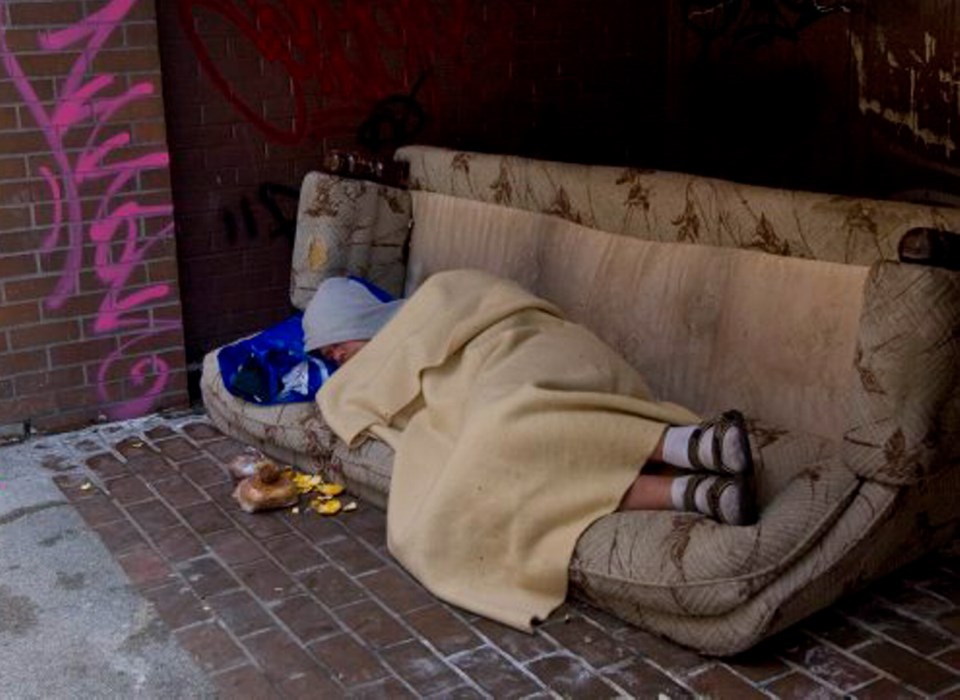Victoria has the highest per capita deaths of homeless people in B.C., according to a report released Thursday.
Thirty-three homeless deaths were reported to the coroners service between 2007 and 2013. There were 281 homeless deaths in B.C. in that period, including 70 on Vancouver Island. Vancouver had 64.
“It’s distressing to see how high the number is in Victoria. A disproportionate number of people are dying on the Island and that’s troubling,” said Sean Condon, author of the report and executive director of Megaphone. The advocacy organization publishes a magazine and operates employment programs in Vancouver and Victoria.
The report represents only a portion of homeless deaths, Condon said. “Only about 25 per cent of deaths are reported to the B.C. Coroners Service. They are quite stringent with their definition of homeless so the number is an under-count,” he said, adding someone has to not have a permanent address at all to be counted as homeless. For many of the 15,000 homeless in the province, their housing situations can be complicated — they might have insecure housing or not live at their address for safety reasons.
Many homeless people die in hospital or of natural causes and their deaths are not reported to the coroner. There is no system for shelters or social services to log or track deaths.
Condon said this underscores the need for more research and reporting on homeless deaths.
“If we’re going to solve homelessness we need to know the real numbers of who is dying and why,” he said. “The best way to prevent homeless deaths is to end homelessness. Governments can and should be doing more to get people off the street.”
The report recommends the B.C. Coroners Service amend its definition of homelessness and produce an annual report to better capture the scope of who is dying and how.
Coroners spokeswoman Barb McLintock called the report useful. But she said counting is complicated. “It can’t be subjective, that somebody said Joe was homeless three months ago,” she said, noting boundaries are vital.
The service works under conditions where only one-quarter of deaths are reportable to it by law, as it’s not mandated to scrutinize deaths under a physician’s care, she said.
The report found that close to half of the homeless in B.C. died from accidental causes, such as overdoses and vehicle crashes, compared to 18 per cent of the general population. The average age of death for the homeless population was 40 to 49, compared to 83 for most British Columbians. The homeless are also twice as likely to die from suicide and homicide.
Rev. Al Tysick, a longtime Victoria homeless advocate, said he was surprised by the report but noted Vancouver has worked hard to house people over the past few years. Victoria needs more housing, he said.
Tysick said he sees an average of two homeless deaths in Victoria per week.
“This year a lot of the old fellows have passed but I haven’t noticed a specific increase,” he said, noting there seems to be fewer overdoses. “The root cause is homelessness.”
The report also urged governments to develop a poverty reduction strategy and national housing plan. Condon said solutions have so far been “piecemeal.”
The B.C. ministry responsible for housing said it is reviewing the recommendations. A spokeswoman said in an email that the province has an “aggressive housing strategy,” including a commitment of $520 million to build more than 2,100 new supportive housing units.
— With a file from The Canadian Press



